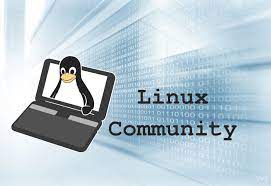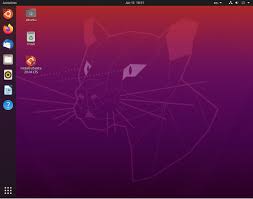Unleashing the Power of Collaboration: The Thriving Linux Community
The Thriving Linux Community: Fostering Collaboration and Innovation
Linux, an open-source operating system, has garnered a loyal and passionate community of users, developers, and enthusiasts worldwide. This vibrant community plays a crucial role in shaping the evolution of Linux, fostering collaboration and innovation that drives the continuous improvement of this powerful platform.
At the heart of the Linux community lies a shared belief in the power of open-source software. Unlike proprietary systems, Linux allows users to access and modify its source code freely. This openness encourages transparency, peer review, and collective problem-solving, leading to robust and reliable software that can be tailored to meet diverse needs.
One of the defining characteristics of the Linux community is its inclusivity. Regardless of skill level or background, anyone can contribute to this thriving ecosystem. From seasoned developers to enthusiastic hobbyists, all are welcome to share their knowledge and expertise. This diversity fuels a rich exchange of ideas and perspectives that drives innovation forward.
Collaboration is at the core of the Linux community’s ethos. Developers from around the world work together on various projects, sharing code, discussing ideas, and solving problems collectively. The collaborative nature of this community not only accelerates development but also ensures that different perspectives are considered in decision-making processes.
The Linux community thrives on its strong support networks. Online forums, mailing lists, chat channels, and social media platforms serve as virtual meeting places where users can seek assistance or discuss topics related to Linux. These channels provide a space for individuals to connect with like-minded enthusiasts who are eager to help solve technical issues or offer guidance.
Furthermore, numerous conferences and events dedicated to Linux bring together members of the community in person. These gatherings provide opportunities for networking, learning from industry experts through talks and workshops, as well as showcasing new developments within the Linux ecosystem. Such events foster personal connections that strengthen collaboration beyond virtual spaces.
The impact of the Linux community extends far beyond just software development. Linux distributions, such as Ubuntu, Fedora, and Debian, have gained popularity due to the community’s efforts in creating user-friendly interfaces and comprehensive documentation. These distributions make Linux more accessible to a wider range of users, attracting newcomers who may have been hesitant to explore open-source solutions.
The Linux community’s commitment to security is also noteworthy. With a large number of eyes scrutinizing the code for vulnerabilities, issues are often identified and resolved swiftly. This collective effort ensures that Linux remains a secure platform for users worldwide.
In conclusion, the Linux community symbolizes the power of collaboration and openness in the world of technology. Through its inclusive nature, collaborative spirit, and dedication to security and innovation, this community has propelled Linux to become one of the most widely used operating systems globally. As we look towards the future, it is clear that the Linux community will continue to push boundaries and shape the evolution of open-source software for years to come.
Frequently Asked Questions about the Linux Community in the UK
- What is the version of the Linux operating system?
- What is the point of Linux?
- Where can I ask Linux questions?
- What is the official Linux?
What is the version of the Linux operating system?
The Linux operating system does not have a single version as it is an open-source platform that can be customized and modified by different organizations and individuals. Instead, Linux is distributed in various versions known as distributions or distros. Some popular Linux distributions include Ubuntu, Fedora, Debian, CentOS, and Arch Linux, each with its own version numbering system and release cycles. These distributions often package the Linux kernel along with additional software and tools to create a complete operating system experience. The Linux kernel itself, which serves as the core of the operating system, does have its own version numbers that indicate different releases and updates.
What is the point of Linux?
The point of Linux is to provide an open-source operating system that offers users a powerful, flexible, and secure alternative to proprietary software. Linux was created with the aim of providing a free and accessible platform that can be customized and tailored to meet diverse needs.
Here are some key points that highlight the purpose and significance of Linux:
- Freedom: Linux embodies the principles of free software, allowing users to access, modify, and distribute its source code. This freedom empowers individuals and organizations to take control of their computing environment, ensuring they are not locked into proprietary systems or subjected to restrictive licensing terms.
- Customization: Linux offers a high level of customization, enabling users to configure their systems according to their specific requirements. With a wide range of distributions available, each catering to different user preferences and use cases, Linux allows for personalized computing experiences.
- Stability and Reliability: Linux has gained a reputation for stability and reliability. Its robust architecture ensures efficient resource management, minimal crashes or system failures, and excellent performance even under heavy workloads. This makes it an ideal choice for both personal and enterprise use.
- Security: The open-source nature of Linux facilitates constant scrutiny by developers worldwide who identify vulnerabilities promptly and contribute security patches. With its strong focus on security features like access controls, encrypted file systems, secure package management systems, and regular updates, Linux provides users with a secure computing environment.
- Community Collaboration: The Linux community is renowned for its collaborative spirit. Developers from around the world actively contribute their expertise towards enhancing the operating system’s features, fixing bugs, developing applications, creating documentation, and providing support through forums or chat channels. This collective effort results in continuous improvement and innovation within the Linux ecosystem.
- Cost-effectiveness: As an open-source operating system distributed under licenses such as the GNU General Public License (GPL), Linux can be freely downloaded and installed on any compatible hardware without any licensing fees. This makes it an attractive choice for individuals, businesses, educational institutions, and governments looking to reduce software costs without compromising on functionality or security.
- Compatibility: Linux supports a wide range of hardware architectures and provides compatibility with various software applications. This versatility allows users to run Linux on different devices, from personal computers and servers to embedded systems and mobile devices.
Overall, the point of Linux is to offer users an alternative operating system that promotes freedom, customization, stability, security, community collaboration, cost-effectiveness, and compatibility. It empowers individuals and organizations to have control over their computing environment while benefiting from a global community dedicated to continuous improvement and innovation.
Where can I ask Linux questions?
If you have Linux-related questions, there are several platforms where you can seek assistance and engage with the Linux community. Here are some popular options:
- Online Forums: Linux forums provide a platform for users to ask questions, share knowledge, and engage in discussions. Popular Linux forums include LinuxQuestions.org, Ubuntu Forums, and Arch Linux Forums.
- Stack Exchange: The Unix & Linux Stack Exchange is a question-and-answer site where you can ask specific technical questions related to Linux and Unix-like operating systems. Users with expertise in the field provide answers and solutions.
- Subreddits: Reddit hosts various subreddits dedicated to Linux, such as r/linuxquestions, r/linux4noobs, and distribution-specific subreddits like r/Ubuntu or r/archlinux. These communities offer a space to ask questions, seek advice, and participate in discussions.
- IRC Channels: Internet Relay Chat (IRC) channels are real-time chat rooms where users can interact with other Linux enthusiasts. Channels like #linux on Freenode or distribution-specific channels provide an avenue for seeking immediate help or engaging in discussions.
- Mailing Lists: Many distributions maintain mailing lists where users can subscribe to receive updates and participate in discussions related to that specific distribution. These mailing lists often have sections dedicated to asking questions or seeking help.
- Official Documentation and Support Channels: Most Linux distributions have official documentation websites that provide comprehensive guides and troubleshooting resources. Additionally, they may offer support channels such as ticketing systems or live chat support for more direct assistance.
Remember to be respectful when seeking help from these platforms by providing clear information about your issue and being patient while waiting for responses. The Linux community is known for its willingness to assist others, so don’t hesitate to reach out when you need guidance or solutions for your Linux-related queries!
What is the official Linux?
Linux itself is not a single, monolithic entity with an official version. Linux is an open-source operating system kernel that serves as the foundation for various distributions, each with its own characteristics and goals. These distributions, often referred to as “distros,” package the Linux kernel along with additional software and tools to create a complete operating system.
Some popular Linux distributions include Ubuntu, Fedora, Debian, CentOS, Arch Linux, and many more. Each distribution has its own community of developers and users who contribute to its development and provide support.
While there is no single “official” Linux distribution, the Linux kernel itself is maintained by Linus Torvalds and a team of developers. They oversee the ongoing development and release of new versions of the kernel. The Linux kernel is licensed under the GNU General Public License (GPL), which allows anyone to use, modify, and distribute it freely.
In summary, Linux refers to the open-source operating system kernel developed by Linus Torvalds and a community of contributors. However, there are numerous distributions that package this kernel along with additional software to create complete operating systems suitable for various purposes.




